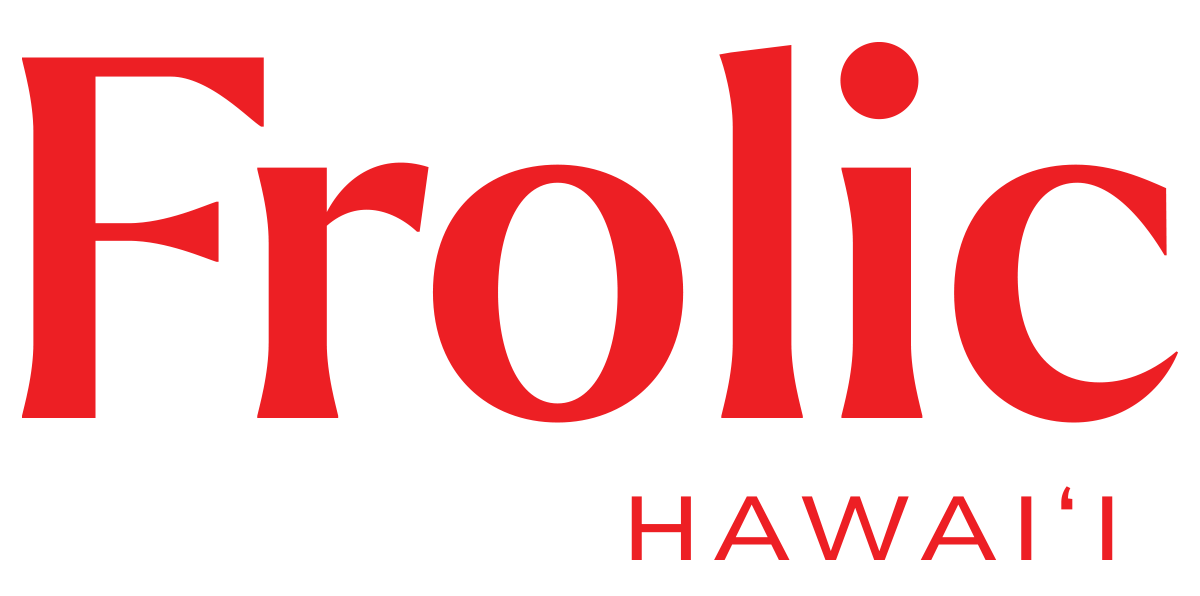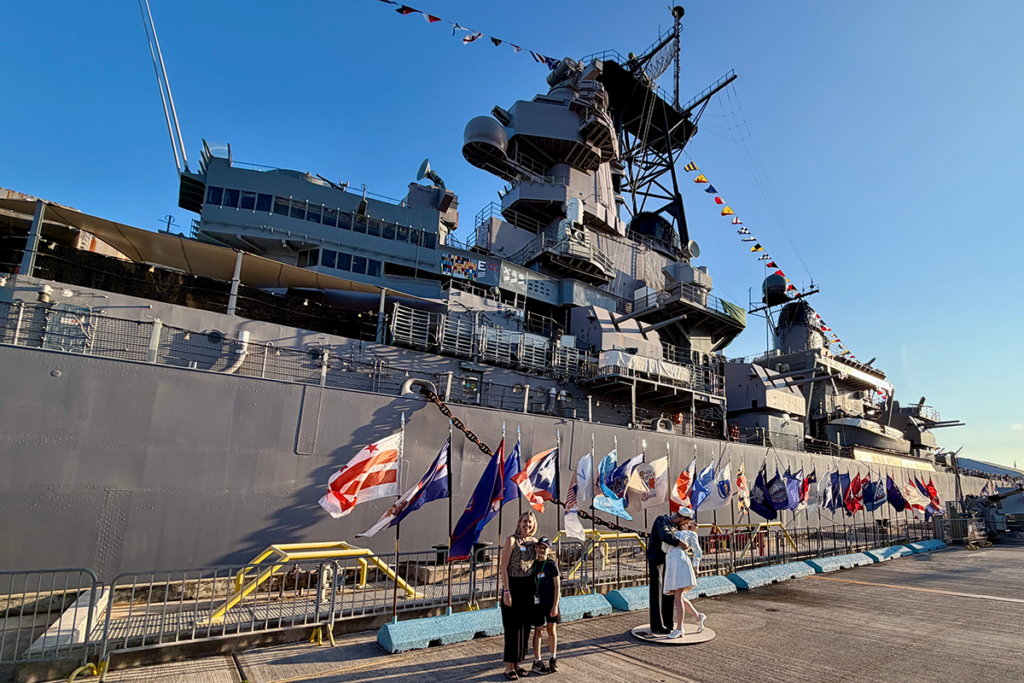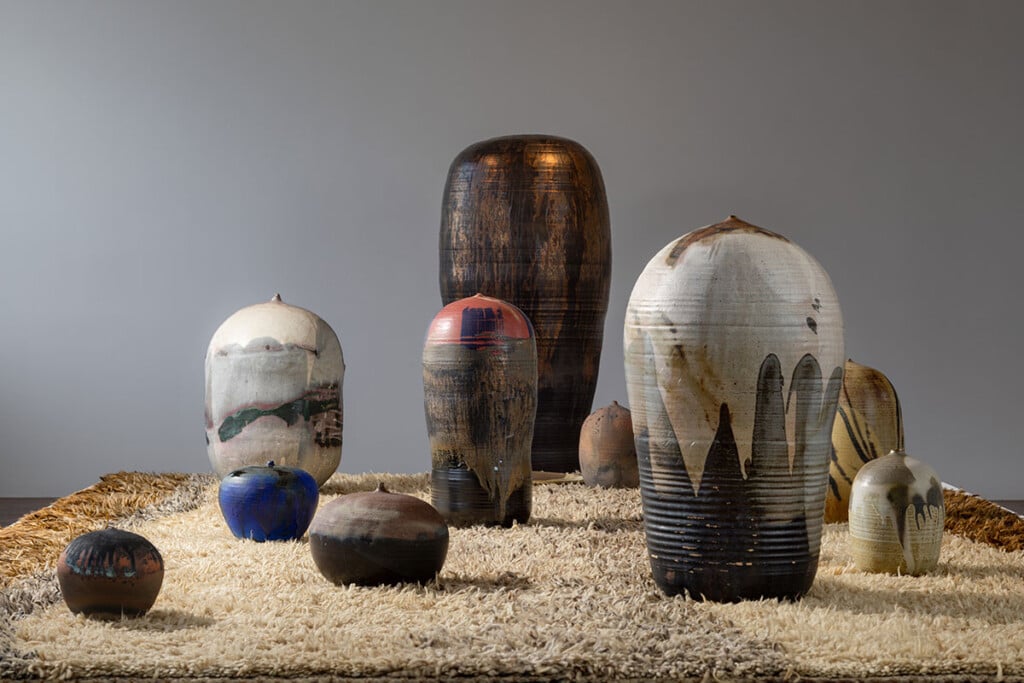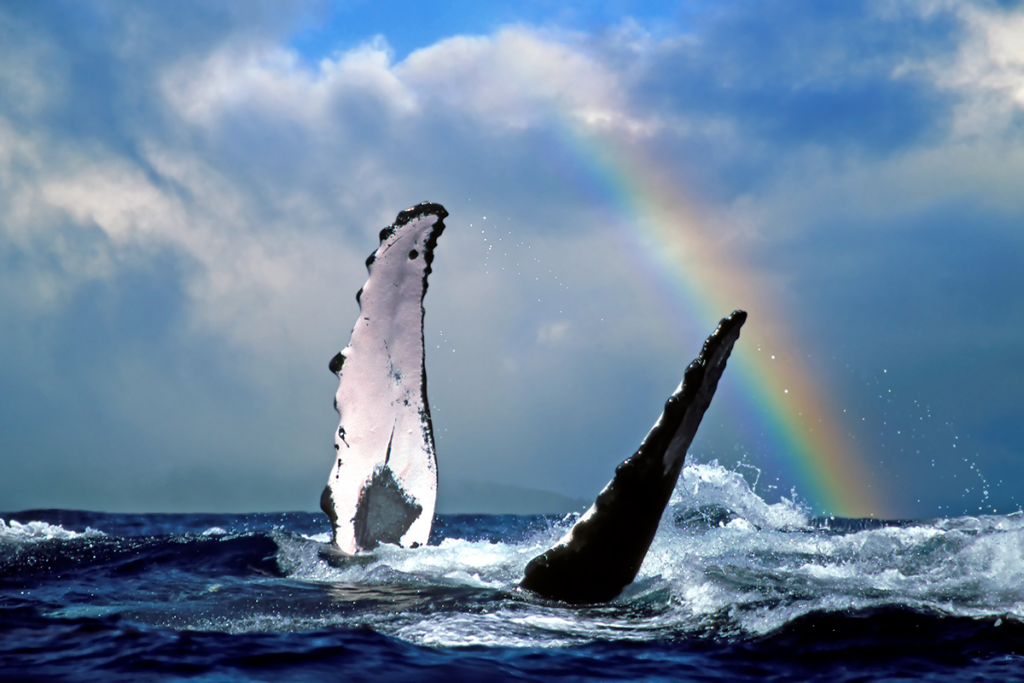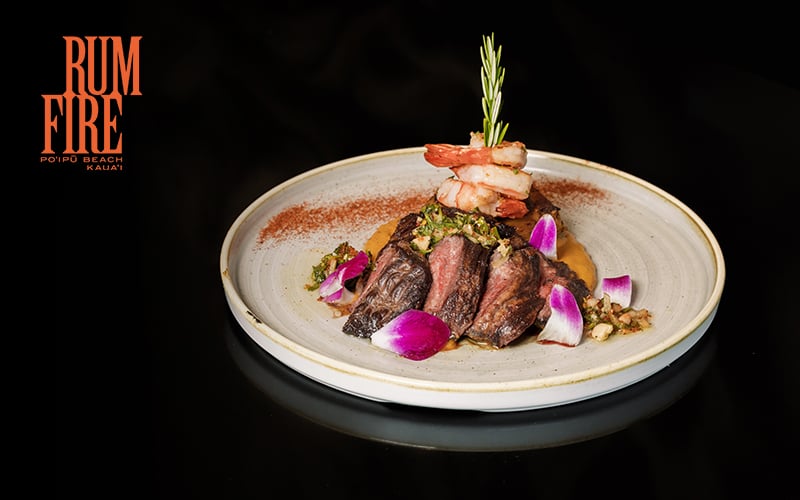HIFF: An Afternoon with ‘Hawaii Five-O’
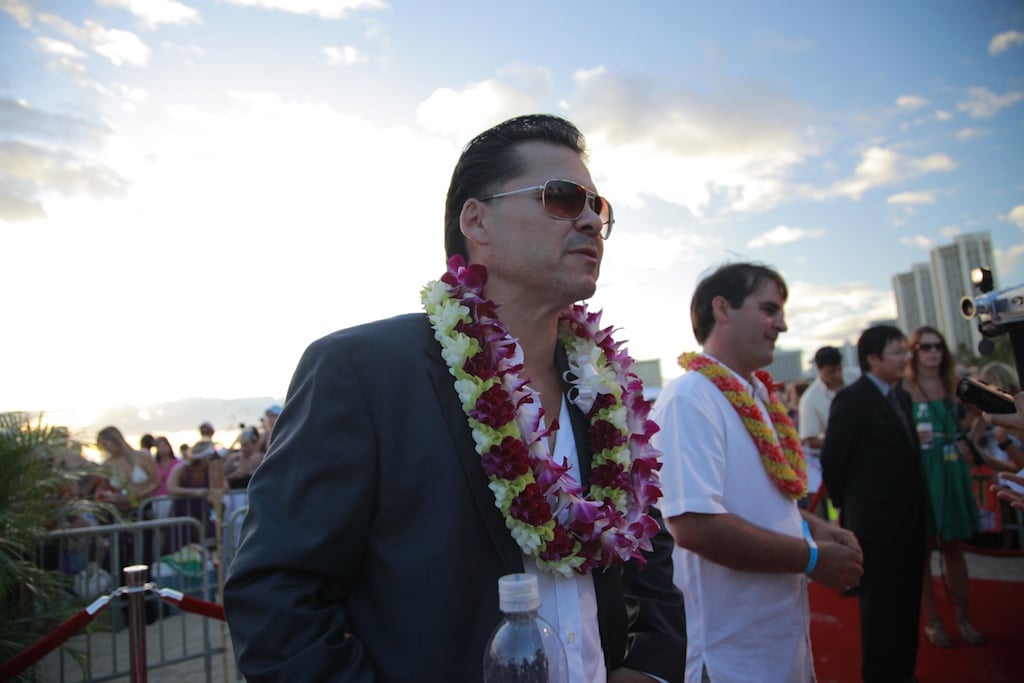
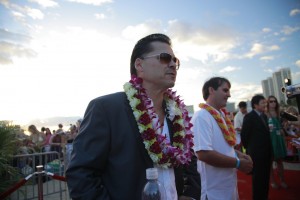 The Hawaii International Film Festival sidestepped into the television industry Sunday afternoon with its panel discussion, An Afternoon with “Hawaii Five-0,” at the Halekulani Hotel.
The Hawaii International Film Festival sidestepped into the television industry Sunday afternoon with its panel discussion, An Afternoon with “Hawaii Five-0,” at the Halekulani Hotel.
The panel — moderated by HIFF programing director Anderson Le — featured executive producer Peter Lenkov, director Steve Boyum, and cast members Alex O’Loughlin, Daniel Dae Kim, Grace Park, Lauren German and Taylor Wily. The 200-person ballroom quickly sold out after the lineup was announced last Thursday.
The discussion began with a one-on-one conversation between Le and Lenkov about the the show’s early development, then the cast was brought on stage.
Part 1: Highlights from the panel (Part 2 coming Tuesday)
HIFF Executive Director Chuck Boller: What’s there to say about “Hawaii Five-0?” The original “Hawaii Five-0” is one of the most popular shows in the history of television, and much thought over the years has been put into a new “Hawaii Five-0.” I think nobody could have imagined the success of this extraordinary new show. Launched in 2010, it was indeed the most anticipated new drama. It premiered to more than 20 million viewers. A definite record. It captivated a very broad demographic with pulsating action, breathtaking cinematography and a seductive, funny, and above all, talented all-star cast. It’s an international hit and just an extraordinary show.
Anderson Le: So Peter, “Hawaii Five-0” is such an iconic show. Did you watch it growing up?
Peter Lenkov: I’m sure I’ve said this ad nauseum in many interviews. It was a show that my dad watched… I didn’t really become much of an aficionado of the show just watching it by his knee. I was really little at the time. Don’t remember much about the show. I just remember how important it was for him, and that’s where my love for Hawaii and my love for that show came through that experience of sitting with my dad watching that show.
Le: When the series ended in 1980, there were a lot of false starts to revive the show such as in the ’90s. How did your proposal, your version, separate from the pack?
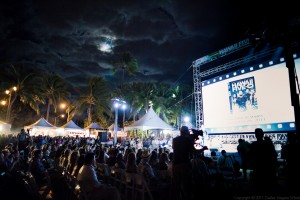 Lenkov: I really went in and dove into the characters. For me, I watch TV shows for the characters. I really focused on making these guys interesting, and I think that’s what CBS responded to. They liked the characters. I think they felt, okay, you’re shooting it in paradise, so that’s going to be an easy sell to the audience.
Lenkov: I really went in and dove into the characters. For me, I watch TV shows for the characters. I really focused on making these guys interesting, and I think that’s what CBS responded to. They liked the characters. I think they felt, okay, you’re shooting it in paradise, so that’s going to be an easy sell to the audience.
Le: I think what is really great about the show is that they are all sort of lost souls who are looking for a sense of family. Can you comment on that?
Lenkov: Well I think that there is a huge theme. Again, it’s not very subtle, but it’s a theme of family… I built this show on the idea of these people being a family… needing each other. So, if you watch the pilot again, it’s not very subtle. But there’s a family relationship with every one of these characters in terms of McGarrett and his father, and there’s Danny and his daughter, and there’s Chin Ho and his cousin. Ultimately these people are really lost out there and need each other, and they’re all alone.
Le: So for you’re iteration of “Hawaii Five-0,” what did you see and design? What did you want from the original? What did you want to modernize?
Lenkov: I think for me, I wanted to keep the spirit of the show. I didn’t want to do a next generation; I didn’t want to do anything but just honor that source material. Again, I’m a big fan of it, so if it wasn’t broke, I didn’t try to change it.
Le: One of the things that was one of the main threads of the original was McGarrett vs. Wo Fat. Can you just talk about the inevitable grand plan of this?
Lenkov: Well the idea was, I was hoping to fool the audience a little bit when we first did the pilot. I was hoping people would think that Victor Hess was Wo Fat. Sort of the new Wo Fat, and the idea was to have that relationship exist in the show. But I wanted to introduce Wo Fat much later on in the show, because I felt that I really wanted to do it very small and subtle. Also, you take someone like Mark Dacascos and you put him in… and people are saying why are you using Mark Dacascos, this great actor in only once scene in the show. But for me, I really sort of wanted to introduce him and less is more and sort of build a reputation. Ultimately in the end, we’re going to use him sparingly because we do have a big plan with this show so that it runs its course. It is similar to the original “Five-0,” where a little goes a long way with that character and with that story. We have a huge sort of master plan, but it’s going to be small bits and pieces over the next few years.
Le: McGarrett, Jack Lord in the original, was such an iconic man and iconic character. Casting is sort of 90 percent of the job. Did you have people in mind for these iconic characters like Kono, Chin Ho and Danno?
Lenkov: When I really went in and pitched the show, I had a list of characters who could play these rolls. It was more about selling them on who they could be. When I started writing it, the only person that I realized that I was writing for was Daniel Dae Kim. Really the Chin Ho character was the older uncle of the team. Daniel had actually heard that I was writing the pilot, so he came out to Los Angeles and we met. He really wanted to be involved. He’s a fan of the source material, and he just wanted to be a part of a continuation of this thing. After he left, I went back to writing the script and I realized that my older Chin Ho started becoming a younger sort of Chin Ho and instead of Kono being his niece she became his cousin. I realized that I was writing for Daniel Dae Kim, and that was the first actor that I had in mind.
(Cast introduction)
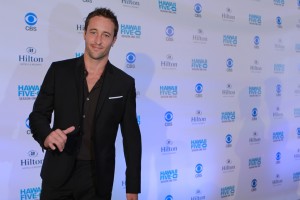 Le: In the original, McGarrett was much more of a mentor to the mentee. Can you comment? It’s always a great treat seeing (McGarrett and Danno) banter and argue in the car.
Le: In the original, McGarrett was much more of a mentor to the mentee. Can you comment? It’s always a great treat seeing (McGarrett and Danno) banter and argue in the car.
Alex O’Loughlin: The “carguments.”
Le: Carguments?
O’Loughlin: Yeah, someone coined that.
Lenkov: I wanted more of a relationship. I didn’t want to have McGarrett assigning and people going out and everybody reporting to him. I wanted it to be more of a family. I wanted people to have a voice, and avoid the procedural elements of the show. All that stuff is scripted, but it takes great actors to pull it off… That was the first scene I wrote, by the way, with Danno and McGarrett meeting, because that’s the belief. If I can nail what that relationship, what that dynamic will be, I can build on that in the rest of the story.
Le: Alex, How does your Steve McGarrett differ from Jack Lord’s?
O’Loughlin: My Steve McGarrett is a lot different from Jack Lord’s, and the show is very different from the old show. I get this question a lot. “Five-0” was a really important show for television at the time. It was a huge cop show, around for 12 years, and back then, there were only two and a half channels or something. It was that or “The Cosby Show.” There were about 50 million people living on earth. A lot has changed since then. The nature of television has changed, and the nature of the business has changed. Technology had changed so much that we have to keep up, but the great thing for us is that technology has taken us to a point where we can do things that really rival what they do in movies.
Coming back to the original question, all that being said, my Steve McGarrett is a man with a huge past. In the teaser of the pilot, you already know so much about him. You know he’s a Navy Seal. You know he’s active; you know he’s on a mission; you know his father is killed, and it’s related to the mission that he is on. Jack Lord is a man without a past. He was kind of a ghost of a man who had a lot of power, but we weren’t allowed to know anything about him. My guy is different from the beginning. I try to stay away from anything Jack did and approached it as an actor working from the ground up. We pay homage to the old show as much as we can. We’ve got a lot of props, the car. We’ve got things throughout the set. The hat rack in the office is from Jack’s original office. Wherever we can we give a tip of the hat because we play in the shadow of that show. We have great respect for what came before us.
Le: I like that all the characters are all flawed. Where do you pull from to build your character?
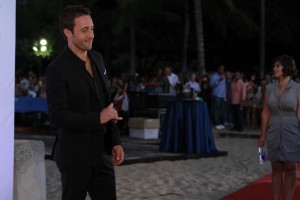 O’Loughlin: Oh I can’t tell you that. That’s like asking Anthony Bourdain how he makes his secret lobster bisque. It’s like as an actor… it’s a funny art form. If you’re an artist, you paint. If you’re a musician, you play a score. There’s something very tangible and specific about what you do. If you play the wrong note, you’re not playing the piece correctly, whereas with what we do, there are so many different interpretations of a role or a scene. That’s what makes casting so important. Sometimes you watch a movie and it’s just not quite right. Sometimes it’s down to just interpretation. I trained for three years in Sydney at the National Institute of Dramatic Arts. I learned a lot. I guess it was the pinnacle of my training… I have a way that I work as an artist; you go to your experience. If you are good at what you do, you find a way to turn the objective experience into a subjective study tool.
O’Loughlin: Oh I can’t tell you that. That’s like asking Anthony Bourdain how he makes his secret lobster bisque. It’s like as an actor… it’s a funny art form. If you’re an artist, you paint. If you’re a musician, you play a score. There’s something very tangible and specific about what you do. If you play the wrong note, you’re not playing the piece correctly, whereas with what we do, there are so many different interpretations of a role or a scene. That’s what makes casting so important. Sometimes you watch a movie and it’s just not quite right. Sometimes it’s down to just interpretation. I trained for three years in Sydney at the National Institute of Dramatic Arts. I learned a lot. I guess it was the pinnacle of my training… I have a way that I work as an artist; you go to your experience. If you are good at what you do, you find a way to turn the objective experience into a subjective study tool.
The funny thing about television is… you get the material, and you’re working the next day. You don’t have time to go full Stanislavsky and go into the forest and grow a beard and do all that stuff that we thespians like to do. It’s almost like cold reading. It’s an instinct mechanism that gets stronger. It’s a muscle as well that gets stronger the more you do work like this.
Le: So how’s living in Hawaii now?
O’Loughlin: I love it man. I love it; it’s my home. Australia will always be my home. I’ll always be an Aussie, but you know, I mean, it’s funny. You know a few years ago with Eckhart Tolle… and everyone became into self-help and started saying things like, “Dude it just wasn’t meant to be.” I kind of believe that’s the way things happen despite how they feel or how they seem at the time. If you kind of step away from it, you can see why it’s happening the way it is. Me being here isn’t really an accident.
… From the very beginning, it was kind of meant to be. I come here and in hindsight it becomes so much clearer to me because I wake up in the islands, and I grew up surrounded by this ocean. I’ve never felt outside of Australia more at home than anywhere else than Hawaii. I’m a homeowner here. I have a dog. I think that’s even more significant than a wife or a child. Once you get a dog, where I come from, you know, “Well I’ve got a dog, I’m not going anywhere.” I’ll always have a place here no matter what happens.
Le: So, this is a perfect transition to pass the mic to Daniel.
Daniel Dae Kim: Listening to Alex I pretty much echo what he has to say. There’s a reason I was brought here eight years ago. I feel like it was meant to be a little bit, so I was glad to be here with this group of people to start the next stage of what’s happening. It could be a long one.
